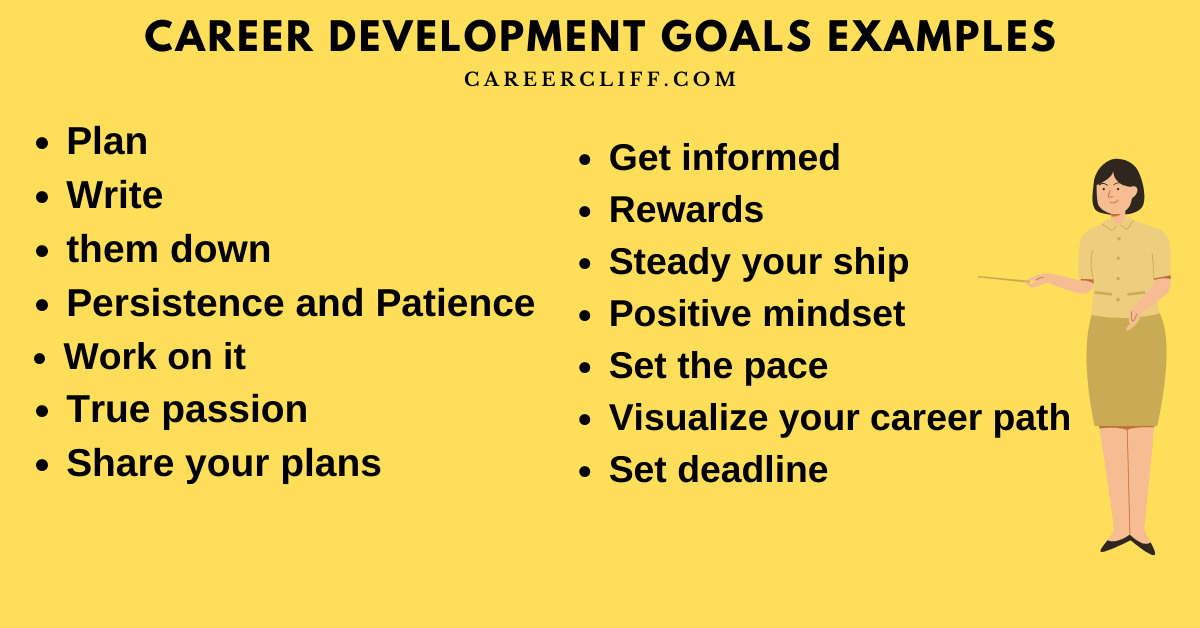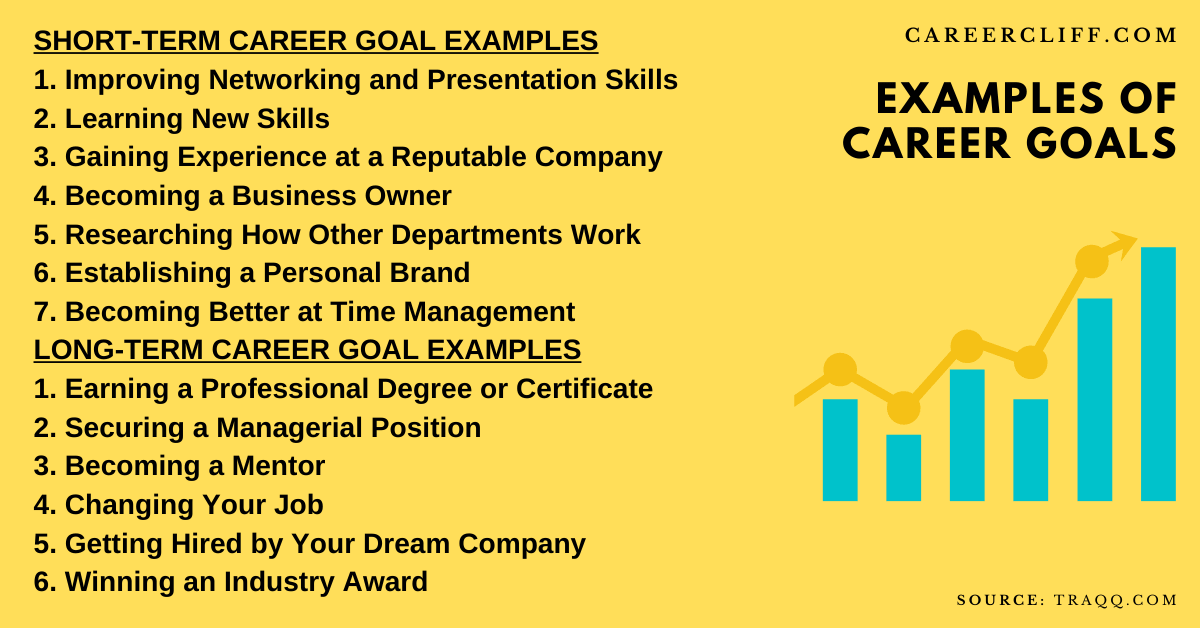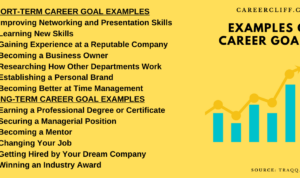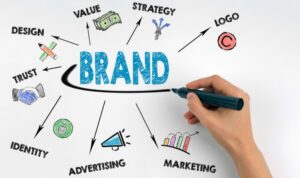Career Development Goals are the key to unlocking your full potential and achieving success in your professional journey. From setting clear goals to seeking feedback and mentorship, this guide will take you on a journey to career growth and development.
Setting Career Development Goals

Setting clear career development goals is essential for creating a roadmap to success in your professional life. By defining your objectives, you can focus your efforts, stay motivated, and track your progress effectively.
Importance of Setting Clear Career Development Goals
- Helps in staying focused and motivated towards achieving desired outcomes.
- Provides a sense of direction and purpose in your career journey.
- Allows for better decision-making and prioritization of tasks.
How Specific and Achievable Goals Enhance Career Progression
- Specific goals help in clearly defining what you want to accomplish, making it easier to create a plan of action.
- Achievable goals ensure that you set realistic targets that are within your reach, boosting your confidence and morale.
- Enhances productivity and efficiency by breaking down larger objectives into manageable tasks.
Examples of Short-term and Long-term Career Development Goals
- Short-term Goal: Complete a certification course in your field within the next six months.
- Long-term Goal: Obtain a managerial position within five years.
Tips on Setting SMART Goals for Career Growth
- Ensure your goals are Specific, Measurable, Achievable, Relevant, and Time-bound.
- Write down your goals and review them regularly to track your progress.
- Break down larger goals into smaller milestones to make them more manageable.
Identifying Skill Gaps: Career Development Goals
In the context of career development, skill gaps refer to the disparities between the skills an individual currently possesses and the skills required to excel in their desired professional field.
Identifying and addressing skill gaps is crucial for professional advancement as it allows individuals to understand where they need to improve in order to reach their career goals. By recognizing these gaps, individuals can take proactive steps to enhance their skill set and increase their value in the job market.
Assessing Current Skill Set
To assess one’s current skill set and identify areas for improvement, individuals can consider the following methods:
- Self-assessment: Reflect on your strengths and weaknesses, and evaluate which skills are lacking or need development.
- Feedback from peers or supervisors: Seek feedback from colleagues or mentors to gain insights into areas where you can improve.
- Skills assessment tools: Utilize online platforms or assessments designed to evaluate your skills and provide recommendations for growth.
Tools and Resources to Identify Skill Gaps
There are various tools and resources available to help individuals identify skill gaps, such as:
- Skills assessments: Platforms like Skillshare, Coursera, or LinkedIn Learning offer skill assessments to evaluate strengths and weaknesses.
- Career counseling services: Professional career counselors can provide guidance on identifying skill gaps and developing a plan for improvement.
- Industry-specific resources: Joining professional organizations or attending industry events can help individuals stay updated on the latest trends and skills required in their field.
Developing Skills and Competencies
Developing skills and competencies plays a crucial role in achieving career development goals. These abilities are what set individuals apart in the workplace and help them progress in their careers.
Ways to Develop New Skills and Enhance Existing Competencies
- Enroll in online courses or workshops related to your field.
- Seek mentorship from experienced professionals to gain insights and guidance.
- Attend industry conferences and seminars to stay updated on the latest trends.
- Take on challenging projects at work to push yourself out of your comfort zone.
Continuous Learning and Skill Development in the Workplace
Continuous learning is essential for professional growth. To foster this in the workplace:
- Encourage a culture of learning and development within the organization.
- Set aside time for training sessions and workshops for employees.
- Promote knowledge sharing and collaboration among team members.
Developing Specific Skills for Career Advancement
Developing specific skills can open up new opportunities for career advancement:
- Improving communication skills can help in leadership roles and client interactions.
- Enhancing project management skills can lead to overseeing larger projects and teams.
- Mastering technical skills like coding can pave the way for roles in IT or software development.
Seeking Feedback and Mentorship

Seeking feedback and mentorship is crucial in career development as it provides valuable insights and guidance from experienced individuals. Constructive feedback can help individuals identify areas for improvement, set goals, and grow professionally.
Importance of Seeking Feedback
- Feedback from peers, managers, or mentors can offer different perspectives and highlight blind spots.
- It helps individuals understand their strengths and weaknesses, leading to personal and professional growth.
- Feedback can lead to improved performance, increased self-awareness, and enhanced communication skills.
How to Ask for Feedback and Leverage Mentorship
- Be open to criticism and approach feedback with a growth mindset.
- Schedule regular check-ins with mentors to discuss progress and seek guidance.
- Ask specific questions to elicit meaningful feedback and actionable advice.
- Show appreciation for the feedback received and demonstrate a willingness to implement suggestions.
Benefits of Mentorship in Achieving Career Goals
- Mentors can provide career guidance, share industry insights, and offer networking opportunities.
- They can help individuals navigate challenges, make informed decisions, and set achievable goals.
- Mentorship fosters personal development, builds confidence, and accelerates career advancement.



